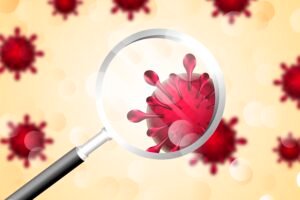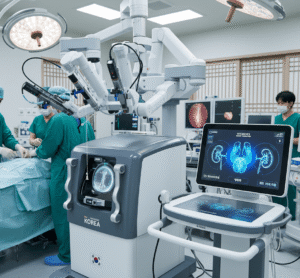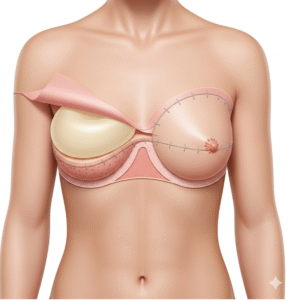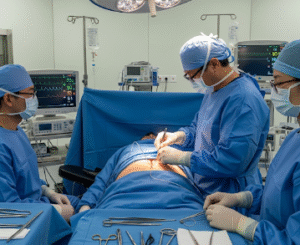Overview
Heart palpitations are sensations of irregular, rapid, or unusually strong heartbeats that can be felt in the chest, throat, or neck. They are often described as fluttering, pounding, or skipping beats. While heart palpitations are commonly benign, they can sometimes indicate underlying heart or systemic conditions requiring medical attention.
In South Korea, cardiology clinics and hospitals provide advanced diagnostics, monitoring, and treatment options for heart palpitations, ensuring both symptom management and identification of serious cardiac issues.
Key Facts
🟢 ➤ Heart palpitations are sensations of abnormal or irregular heartbeats.
🟢 ➤ Can occur suddenly or gradually, lasting seconds to minutes, and sometimes hours.
🟢 ➤ Common triggers: stress, caffeine, nicotine, medications, or hormonal changes.
🟢 ➤ May indicate underlying arrhythmias, thyroid disorders, electrolyte imbalances, or cardiovascular disease.
🟢 ➤ Diagnostic tools include ECG, Holter monitoring, echocardiography, and blood tests.
🟢 ➤ South Korean cardiology centers offer comprehensive evaluation, minimally invasive procedures, and lifestyle guidance.
What are Heart Palpitations?
Heart palpitations occur when the heart beats unusually fast, irregularly, or forcefully, creating a conscious awareness of heart activity.
Key points:
➤ Often benign in healthy individuals, caused by temporary triggers like stress or caffeine.
➤ Can be symptomatic of arrhythmias such as atrial fibrillation, supraventricular tachycardia, or premature ventricular contractions.
➤ May be accompanied by dizziness, shortness of breath, chest discomfort, or fainting in more serious cases.
➤ Awareness of palpitations is subjective; some people feel them intermittently, while others experience continuous episodes.
Symptoms Related to Heart Palpitations
Symptoms vary depending on underlying cause and severity:
🟢 ➤ Fluttering or rapid heartbeat in the chest, throat, or neck.
🟢 ➤ Skipped or irregular beats, sometimes described as a “flip-flop” sensation.
🟢 ➤ Dizziness or lightheadedness during palpitations.
🟢 ➤ Shortness of breath or tightness in the chest.
🟢 ➤ Fatigue or fainting in severe arrhythmias.
🟢 ➤ Anxiety or panic symptoms may occur as palpitations trigger stress responses.
Causes / Possible Causes
Heart palpitations may arise from cardiac, systemic, or external triggers:
Cardiac Causes
➤ Arrhythmias (atrial fibrillation, supraventricular tachycardia, ventricular tachycardia).
➤ Heart valve disease or structural abnormalities.
➤ Heart failure or ischemic heart disease.
Metabolic and Systemic Causes
➤ Thyroid disorders (hyperthyroidism).
➤ Electrolyte imbalances (potassium, calcium, magnesium).
➤ Fever, dehydration, or anemia.
Lifestyle and External Triggers
➤ Stress, anxiety, or panic attacks.
➤ Caffeine, nicotine, alcohol, or recreational drugs.
➤ Certain medications, including decongestants, asthma inhalers, or stimulants.
Other Causes
➤ Hormonal changes during pregnancy, menopause, or menstruation.
➤ Postural changes or sudden exertion.
➤ Rarely, underlying genetic arrhythmia syndromes (e.g., Long QT syndrome).
When Should I See a Doctor?
Immediate medical attention is required if palpitations are accompanied by:
🟢 ➤ Chest pain, pressure, or discomfort.
🟢 ➤ Dizziness, fainting, or severe shortness of breath.
🟢 ➤ Palpitations occurring with a known heart condition.
🟢 ➤ Rapid or irregular heartbeat lasting more than a few minutes or recurring frequently.
Early evaluation allows diagnosis of potentially dangerous arrhythmias, assessment of cardiac function, and timely initiation of therapy.
Care and Treatment
Management of heart palpitations depends on underlying cause, frequency, and severity:
Lifestyle and Behavioral Measures
➤ Reduce caffeine, nicotine, alcohol, and stimulants.
➤ Stress management through meditation, yoga, or counseling.
➤ Regular exercise to support cardiovascular health.
Medical Management
➤ Antiarrhythmic medications for irregular heart rhythms.
➤ Beta-blockers or calcium channel blockers to control heart rate and reduce palpitations.
➤ Thyroid hormone management in cases of hyperthyroidism.
Procedures and Interventions
➤ Catheter ablation for persistent arrhythmias.
➤ Pacemaker or defibrillator implantation for significant conduction disorders.
➤ Electrolyte correction or treatment of structural heart disease if indicated.
Advanced Care in Korea
➤ South Korean cardiology centers offer comprehensive evaluation with ECG, Holter monitoring, echocardiography, and stress testing.
➤ Integrated care includes medication, lifestyle counseling, and interventional cardiology.
➤ Patient education focuses on recognizing triggers, monitoring symptoms, and adherence to therapy.
Highlights (Clean Green Arrow Version)
🟢 ➤ Heart palpitations are sensations of irregular, rapid, or strong heartbeats, sometimes benign but occasionally serious.
🟢 ➤ Symptoms: fluttering, pounding, skipped beats, dizziness, shortness of breath, chest discomfort, or fainting.
🟢 ➤ Causes: arrhythmias, heart disease, thyroid disorders, electrolyte imbalance, medications, stress, or stimulants.
🟢 ➤ Seek urgent care if palpitations are accompanied by chest pain, fainting, or severe shortness of breath.
🟢 ➤ Treatment includes lifestyle modification, medications, procedures like ablation, or device implantation depending on cause.
🟢 ➤ South Korea provides advanced cardiology services with integrated diagnostics, treatment, and patient education.













